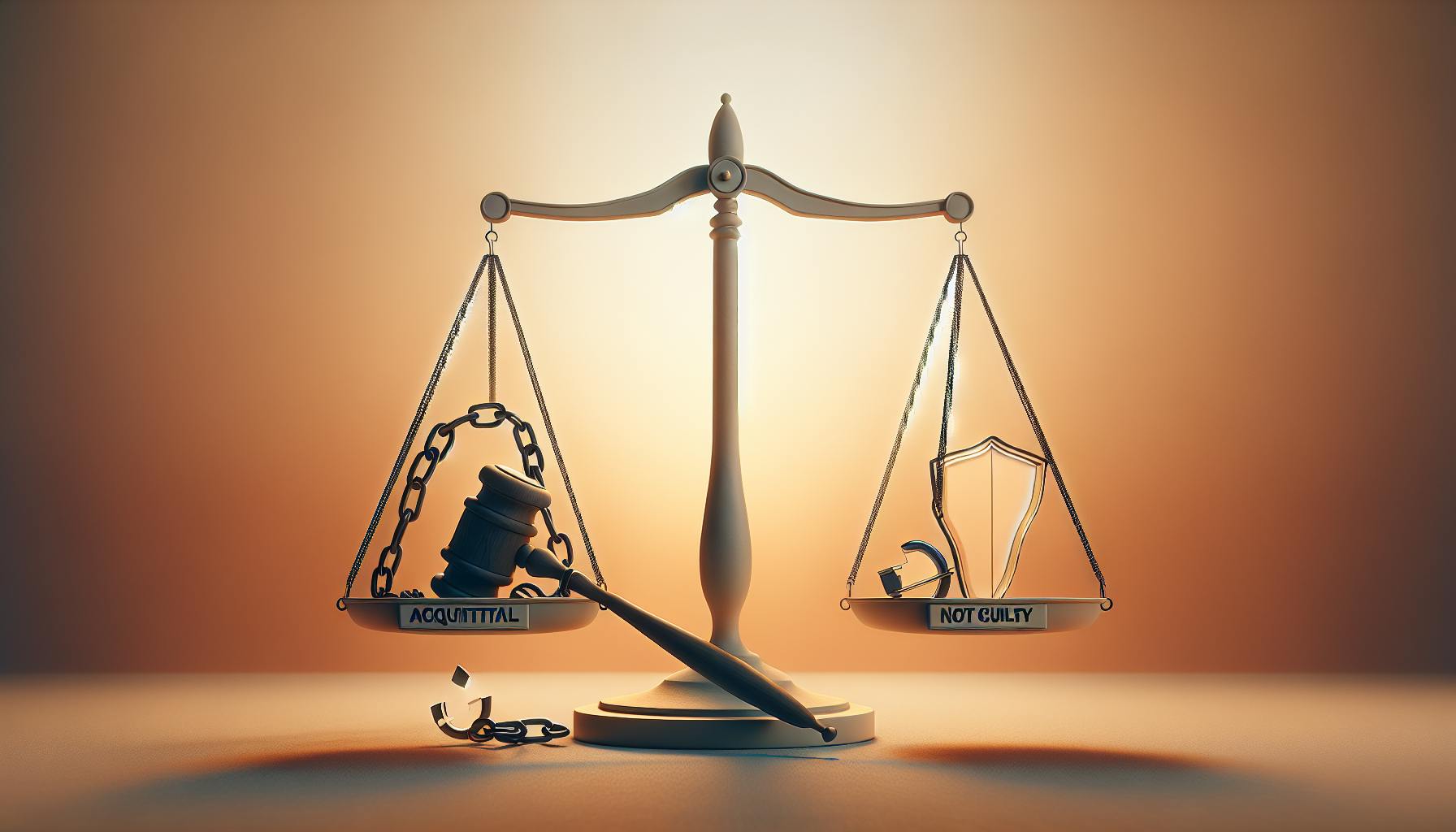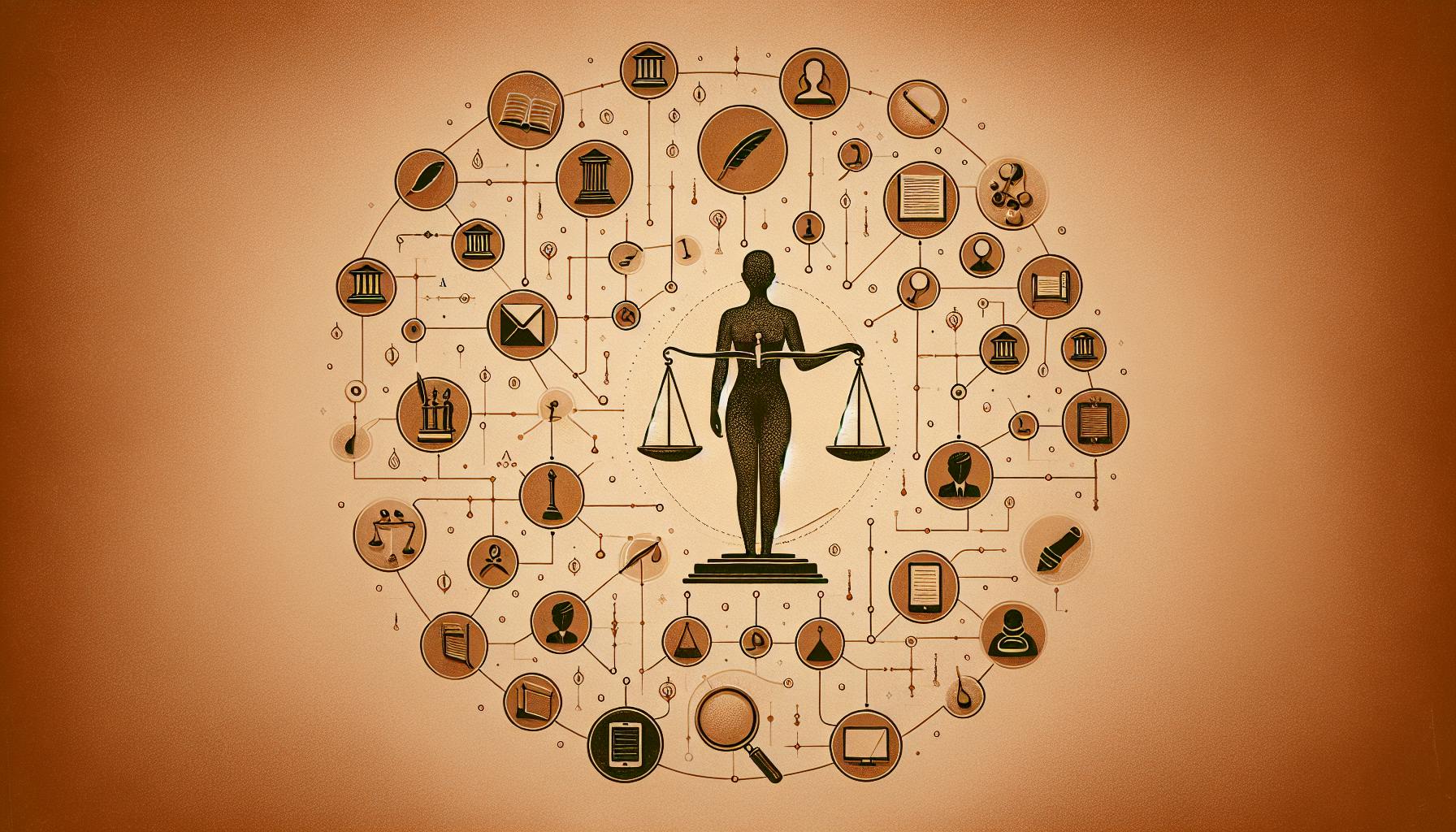Most can agree that preventing unfair legal advantage is an important objective in dispute resolution.
There are two key legal doctrines that can help achieve this goal - the doctrine of laches and equitable estoppel.
Understanding the differences between these doctrines can empower one to argue against unfair delay or contradiction in legal proceedings.
In this article, we will analyze the definitions, requirements, and applications of laches and equitable estoppel. Through comparative analysis and real-world examples, you will gain clarity on utilizing these doctrines to bar unfair legal advantage-taking.
Introduction to Preventing Unfair Legal Advantage
The doctrines of laches and equitable estoppel can help prevent unfair legal advantage in certain situations. Laches bars a party from asserting a legal right after an unreasonable delay if the opposing party has been prejudiced. Equitable estoppel prevents a party from taking a legal position inconsistent with their prior conduct if the other party reasonably relied on that conduct.
Understanding the Doctrine of Laches
The doctrine of laches is an equitable defense that prevents a party from ambushing another party by unreasonably delaying an assertion of rights. The key elements are:
-
Unreasonable delay in asserting a right or claim
-
The other party is prejudiced by the delay
For example, if a landlord unreasonably delays enforcing a breach of lease, and the tenant relies on the landlord's inaction by investing more money into the property, the doctrine of laches may prevent the landlord from suddenly trying to enforce the breach after years of inaction.
Doctrine of Laches Real Estate Example
A commercial real estate landlord discovers that a tenant has breached a provision of their lease agreement. However, the landlord does not promptly enforce the breach or try to evict the tenant. Over the next 5 years, the tenant invests $500,000 into improving the property while operating their business. After this long delay, the landlord finally decides to strictly enforce the old breach of lease and evict the tenant.
In this situation, the tenant could raise the doctrine of laches as an affirmative defense. The landlord unreasonably delayed asserting their rights under the lease, and the tenant was prejudiced by investing substantial money to improve the property they expected to occupy long-term. The court may prevent the landlord from suddenly enforcing the years-old lease breach under these circumstances.
Exploring Equitable Estoppel
Unlike promissory estoppel which applies to promises, equitable estoppel applies to representations of fact that one party reasonably relies on to their detriment.
The elements of equitable estoppel are:
- A party's words, conduct, or silence amounts to a representation of material facts
- The party intended for the representation to be relied upon
- The other party was unaware of the true facts and reasonably relied on the representation
- The other party changed their position based on the representation, suffering injury as a result
For example, a landlord may be equitably estopped from evicting a tenant for violating a lease provision if the landlord's earlier words and conduct led the tenant to reasonably believe that such violations were acceptable, causing the tenant to continue violating the lease provision to their detriment.
Estoppel by Laches in Landlord-Tenant Relations
In landlord-tenant relations governed under a lease agreement, estoppel by laches can prevent parties from reversing long-held positions regarding lease terms to the unfair detriment of the other party. This often arises when a landlord's extended inaction signals acquiescence to the tenant's breach of lease.
For instance, if a commercial lease requires the tenant to strictly use the premises for retail business, but the landlord knows the tenant has been operating some warehouse activities for years without objection, the landlord may be estopped by laches from suddenly enforcing that use clause to evict the tenant after unreasonable delay. The tenant likely relied on the landlord's longstanding acquiescence by investing in warehouse equipment and inventory.
In summary, the doctrines of laches and equitable estoppel serve as defenses that aim to prevent unfair legal advantage when one party delays acting upon a right to the detriment of another party.
What is the difference between laches and equitable estoppel?
The key differences between the doctrine of laches and equitable estoppel are:
-
Delay Requirement: Laches requires an unreasonable delay by the plaintiff in pursuing a legal claim that results in prejudice to the defendant. Equitable estoppel does not necessarily require a delay.
-
Focus: Laches focuses on the impact of the plaintiff's delay and the resulting prejudice to the defendant. Equitable estoppel focuses more on the defendant's detrimental reliance on the plaintiff's statements or conduct.
-
Type of Claim: Laches typically applies as a defense against legal claims seeking equitable relief, like an injunction. Equitable estoppel can apply to both equitable and legal claims.
For example, if Company A sues Company B for patent infringement 8 years after learning of the potential infringement, Company B could argue that the delay constitutes laches, barring the claim.
In contrast, if Company A had previously assured Company B that it did not intend to enforce a particular patent, then Company B started selling infringing products in reliance on that assurance, Company B could argue equitable estoppel prevents Company A from filing an infringement lawsuit, even if there was no delay.
So in summary:
- Laches requires unreasonable delay + prejudice
- Equitable estoppel requires misleading conduct + detrimental reliance
Understanding these distinctions can help parties evaluate which defense applies to their situation. The specific facts involved matter greatly in determining whether laches or equitable estoppel prevents a legal claim.
What does the doctrine of estoppel prevent?
The doctrine of estoppel prevents parties from going back on their word or contradicting previous statements or actions. It establishes certain facts or claims as legally valid to prevent unfairness.
Specifically, estoppel doctrines such as equitable estoppel and estoppel by laches aim to stop someone from asserting a legal right or claim that contradicts their previous conduct, representations, silence, or inaction when it would be unfair or unjust to allow them to do so.
For example, estoppel may prevent:
- A landlord from evicting a tenant for late rent payments after accepting late payments several times without objection
- A person from claiming ownership of a property after silently watching someone else make improvements to it over several years
- A company from denying the existence of a contract after making representations and taking actions indicating a binding agreement
Overall, estoppel doctrines promote equity, good faith, and fair dealing by barring specific legal claims or defenses that could result in injustice if allowed. This prevents parties from gaining an unfair advantage through deception, delay, or contradiction.
What is the defense against doctrine of laches?
The main defense against a claim of laches is to argue that the delay in bringing the legal claim was reasonable under the circumstances. Here are some examples of arguments that can defeat a laches defense:
-
The plaintiff only recently discovered the key facts necessary to assert the claim, despite reasonable diligence. For example, evidence of the defendant's wrongdoing was uncovered in a recent audit.
-
The defendant misled or deceived the plaintiff, preventing them from promptly asserting their rights. For instance, the defendant hid assets to avoid a lawsuit.
-
There were ongoing negotiations between the parties to settle the dispute, making legal action premature. Filing suit during active settlement talks could be seen as unreasonable.
-
The plaintiff faced logistical barriers to bringing the claim earlier, such as financial limitations, disability, or military service obligations.
-
The law on the issue was unclear or still developing during the delay period. It would be unreasonable to expect the plaintiff to sue earlier under great legal uncertainty.
-
Strong public policy interests justify allowing the supposedly "stale" claim. For example, claims of childhood sexual abuse often surface many years later.
Essentially, the plaintiff must show there was a good reason for not acting sooner in seeking a legal remedy, making the delay reasonable and excusable under the circumstances. If the plaintiff can defeat the laches claim by providing a satisfactory explanation, their case can proceed on the merits.
sbb-itb-e93bf99
Why is equitable estoppel important?
Equitable estoppel is an important legal doctrine that promotes fairness and justice by preventing parties from taking unfair advantage of one another. Here are some key reasons why equitable estoppel matters:
-
Prevents abuse of legal technicalities: Without equitable estoppel, parties could use legal technicalities or inconsistencies to gain an unfair upper hand, even if it contradicts previous agreements or understandings. Equitable estoppel blocks this.
-
Upholds integrity in legal dealings: By barring parties from going back on their word if it would harm others, equitable estoppel encourages integrity in legal relationships and transactions. This promotes good faith dealings.
-
Provides stability and predictability: Knowing parties cannot arbitrarily change positions without good reason introduces a degree of certainty into business relations and legal disputes. This stability enables productive relationships.
-
Avoids injustice: Rigid application of the law sometimes leads to unfair outcomes. Equitable estoppel offers courts flexibility to avoid clear injustices, promoting the interests of justice.
In essence, equitable estoppel prevents abuse of the legal system. By barring parties from taking unfair advantage of inconsistencies or technicalities, it upholds integrity in legal dealings, provides stability, and serves the interests of justice. This makes it an essential legal doctrine.
Comparative Analysis of Laches and Equitable Estoppel
Laches and equitable estoppel are related legal doctrines that can prevent one party from pursuing a legal claim against another party if certain conditions are met. However, there are some key differences between these doctrines.
Laches Affirmative Defense Example
Laches may apply as an affirmative defense if there has been an unreasonable delay in bringing a legal claim which has resulted in prejudice to the defendant. For example, if a landlord waits 10 years to sue a former tenant for unpaid rent or property damage, the tenant may argue that the landlord unreasonably delayed making a claim despite having the ability to do so earlier. If the tenant suffered some type of harm as a result, such as losing evidence to defend themselves properly, a laches defense could bar the landlord's claim.
Doctrine of Estoppel Example
Equitable estoppel prevents one party from taking a legal position that is contrary to his previous words or actions. For instance, a landlord promises a tenant he will not increase rent for 2 years. But after 1 year he tries to raise the rent. The tenant can invoke equitable estoppel to bar the rent increase, since the landlord cannot now take a position inconsistent with his original promise.
Evaluating the Burden of Proof
The burden of proof for laches generally rests with the defendant, who must show unreasonable delay and prejudice. But for equitable estoppel, the burden is on the plaintiff to prove that the defendant's conduct amounted to a false representation or concealment of material facts.
Assessing the Type of Harm Addressed
Laches focuses on preventing unfair legal advantage caused by the passage of time and a change in conditions. In contrast, equitable estoppel aims to prevent harm from reasonable reliance on a false statement or representation.
Establishing the Requirements for Each Doctrine
To prove laches, there must be 1) unreasonable delay pursuing a right or claim, and 2) prejudice to the defendant from that delay. For equitable estoppel, there must be 1) conduct amounting to a false representation or concealment of material facts, 2) intention or expectation that the representation will be acted upon, and 3) reasonable reliance on the representation to the relying party's detriment.
In summary, both laches and equitable estoppel can bar legal claims under certain circumstances. But they have distinct requirements and address different types of unfair advantage. Understanding these differences is key to asserting or defending against these doctrines.
Doctrine of Unclean Hands and Its Interplay with Laches and Estoppel
The Principle of Unclean Hands
The doctrine of unclean hands is an equitable defense that bars relief when the party seeking relief has acted unethically or in bad faith. It is based on the principle that those seeking equitable relief must come to the court with "clean hands."
To establish unclean hands, the defendant must show that the plaintiff engaged in misconduct that relates directly to the claim being brought. Examples include fraudulent behavior, misrepresentation, or taking unfair advantage. The doctrine serves to protect the integrity of the court by preventing parties that have acted improperly from benefiting.
Unclean Hands as a Bar to Equitable Relief
If unclean hands is successfully argued, it can act as a complete bar to equitable relief. Some examples where unclean hands may prevent relief:
-
A plaintiff seeks an injunction but made material misrepresentations to the court regarding the facts. The unclean hands defense argues they should be denied equitable relief due to the deception.
-
A tenant seeks to enforce a lease agreement but violated a material term of the lease. The landlord argues the tenant has unclean hands from breaching the contract they now wish to enforce.
-
A plaintiff files suit but delayed filing for an unreasonable period (laches). The defendant argues the plaintiff slept on their rights and has unclean hands due to unreasonable delay.
In each case, the plaintiff acted improperly with regards to the same matter for which they now seek equitable relief. This bars relief under the doctrine of unclean hands.
Relationship Between Unclean Hands, Laches, and Estoppel
There is overlap between the defenses of unclean hands, laches, and equitable estoppel. Laches and estoppel focus on a plaintiff unreasonably delaying legal action. This delay can constitute unclean hands that bars relief.
However, unclean hands also encompasses a wider range of misconduct, such as fraud, misrepresentation, deception, or bad faith. Unclean hands is a broader defense that bars relief due to conscience-shocking behavior.
In some cases, laches, estoppel, and unclean hands may apply simultaneously. When asserted together, these defenses can effectively prevent a party from benefiting from their own misconduct.
Practical Applications and Legal Precedents
Laches and equitable estoppel are legal principles that can prevent unfair legal advantage in court. Let's explore some real-world examples of how they have been applied.
Barred by Laches Meaning and Enforcement
Being "barred by laches" means that a court will not hear your case because you waited too long to bring your legal claim. Typically, courts will enforce this if the delay was unreasonable and caused harm to the other party. For example, waiting 10+ years to sue over a breach of contract would likely trigger laches.
Estoppel by Laches Meaning and Application
Estoppel by laches essentially means you are prevented from making a legal claim because your delay made the other party rely on your inaction to their detriment. A common example is waiting too long to enforce property deed restrictions - if owners have already made improvements, you may be estopped from suddenly trying to enforce the deed.
Estoppel by Laches Lawphil and Common Law Precedents
Under Philippine law and common law systems, equitable estoppel requires (1) a false representation or concealment of facts, (2) made with knowledge of those facts, (3) with the intention that the representation should be acted upon, and (4) that causes the other party injury or detriment. Laches focuses more narrowly on unreasonable delay.
Property and Lease Disputes Involving Laches and Estoppel
In property and lease disputes, laches or estoppel often come into play when:
- A landlord tries to enforce a lease provision after long non-enforcement
- An owner delays suing for trespass until after the trespasser built structures
- A tenant makes improvements then tries to break the lease
Overall, these principles aim to prevent unfair surprise or harm from unreasonable delay in acting on one's legal rights.
Conclusion: Balancing Equities in Legal Disputes
The doctrines of laches and equitable estoppel aim to prevent unfair legal advantage resulting from unreasonable delay in asserting rights or acting upon known facts.
When applied properly, these doctrines can help balance the equities in legal disputes. Laches bars a claim when a party unreasonably delays asserting a right, causing prejudice to the other party. Equitable estoppel prevents a party from asserting a claim or right when their actions, representations, or silence when there was a duty to speak, caused the other party to detrimentally rely.
Courts seek to achieve justice and fairness through the balanced application of these doctrines. The delaying party should not benefit from sitting on their rights. Likewise, the other party should not suffer due to reasonable reliance on the delaying party's conduct, representations, or silence.
Through careful analysis of the facts and equities in each case, courts can reach well-reasoned conclusions. The doctrines of laches and equitable estoppel play a vital role in promoting diligence, preventing injustice, and upholding equity and fairness under the law.


